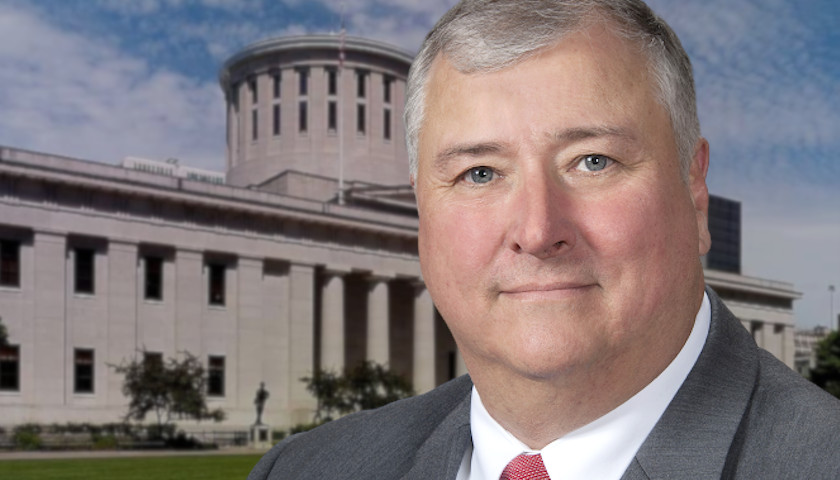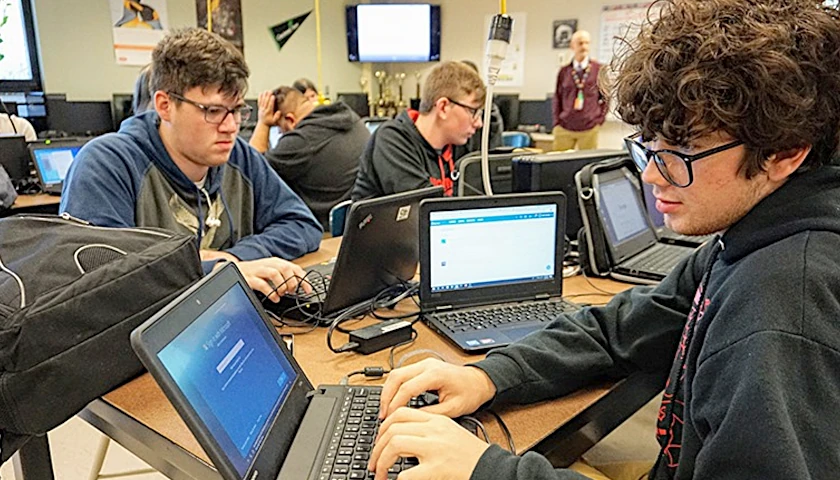by J.D. Davidson
Former Ohio state Rep. Larry Householder ran for reelection under the cloud of a federal indictment and won with 72% of the vote. After being expelled from the Ohio House earlier this week, he thinks he can win again.
Householder said he might run for office again, and at a makeshift news conference in the halls of the Ohio Capitol after the House’s 75-21 vote to remove him from office, said he believes he could win.
Householder, R-Glenford, would have to be cleared of federal bribery and racketeering charges in what U.S. prosecutors have called the largest political corruption case in state history to be eligible to hold office. As it stands, Householder became the first Ohio lawmaker removed from office in more than 160 years.
House Speaker Bob Cupp, R-Lima, will appoint a screening committee to interview applicants to fill the final 18 months of Householder’s term. He issued an announcement Thursday for those in the district that covers Coshocton, Perry and parts of Licking counties to email a résumé and cover letter by Wednesday.
The steering committee will narrow the applicants and present options to the House GOP Caucus, which will select a successor. Cupp has yet to name members of the steering committee.
Householder’s name was the only one on the general election ballot last November. He was indicted in July after the Republican primary, where he was unchallenged. His only opposition in November came from four write-in candidates.
Householder, along with four co-conspirators, were charged 11 months ago in what federal prosecutors called the largest political corruption case in state history. Three of the six entities have pleaded guilty. Householder has pleaded not guilty.
Also charged were former Ohio Republican Party Chairman Matt Borges, lobbyist Neil Clark, the Oxley Group co-founder Juan Cespedes and strategist John Longstreth.
The U.S. attorney’s office said the conspiracy involves more than $60 million paid to a 501(c)(4) entity to pass and uphold a billion-dollar nuclear plant bailout.
The charging documents said the group conspired to launder millions of dollars in bribes through the entity Generation Now. Court documents show the enterprise received millions of dollars in exchange for Householder and the group’s help in passing House Bill 6, which saved two Ohio nuclear power plants from closing.
Longstreth admitted in his plea to organizing Generation Now for Householder, knowing it would be used to receive bribe money to further Householder’s bid for speaker of the House. Longstreth managed Generation Now bank accounts, and he said he concealed the energy company was the source of the funding.
Cespedes admitted he orchestrated payments to Generation Now, and he knew the payments were meant to help Householder politically in return for help in passing HB 6.
HB 6 created a new Ohio Clean Air Program to support nuclear energy plants and some solar power facilities. Electricity consumers were to fund the program with the surcharge that ran through 2027.
The fee, which was scheduled to begin Jan. 1, was stopped by the Ohio Supreme Court in late December. Ohio Attorney General Dave Yost also reached a deal with FirstEnergy to stop what would have been a $120 million windfall for the company this year based on another part of HB 6.
– – –
An Ohio native, J.D. Davidson is a veteran journalist with more than 30 years of experience in newspapers in Ohio, Georgia, Alabama and Texas. He has served as a reporter, editor, managing editor and publisher. He is regional editor for The Center Square.





